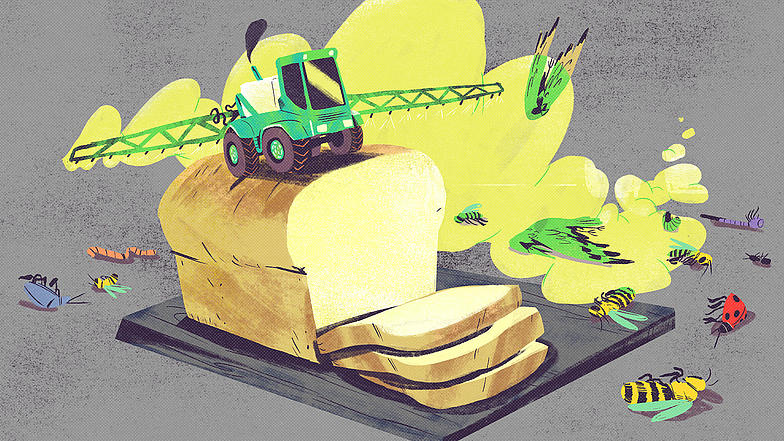Supermarkets: Stop the toxic harvest!
- Pesticides
Do you really know what's in your bread? On half of Europe's land grains are grown, but many are soaked with chemicals, endangering insects and plants and leaving pesticide residues in our food. Despite their "eco-friendly" promises, not a single supermarket has a policy against toxic grains! Together as consumers, we urge supermarkets to ensure that bread, flour, and muesli are sold without pesticides! We demand toxin-free grains!
Supermarkets: Stop the toxic harvest!
- Pesticides
Do you really know what's in your bread? On half of Europe's land grains are grown, but many are soaked with chemicals, endangering insects and plants and leaving pesticide residues in our food. Despite their "eco-friendly" promises, not a single supermarket has a policy against toxic grains! Together as consumers, we urge supermarkets to ensure that bread, flour, and muesli are sold without pesticides! We demand toxin-free grains!
Background information
A joint action of:
foodwatch started the petition on 10.10.2023.
